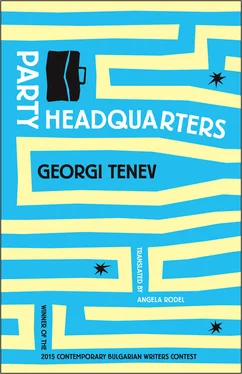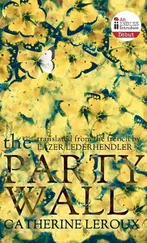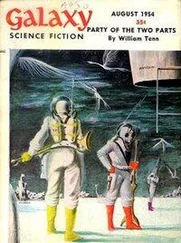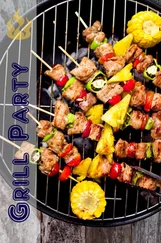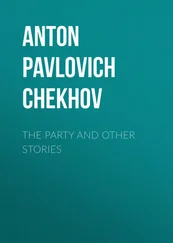The running, the transformation into pain, doesn’t lead me any farther from or closer to the goal, for now. But it’s the only effective reality I have at my disposal.
The only thing I knew about adults was that adults, unlike children, go to work. But I didn’t get what this meant.
Parents worked, neighbors did, too. The day was divided into work time and free time, with a lunch break and the hygienic half-day off, into the five-day work week plus that disputed slice of Saturday.
I took me a lot of time to grow up. It took me even more time to figure out what the point of that everyday motion was: so mechanistic and ingrained that it even turned vacations into work. An activity with regulated parameters, innocent and naïve, just like those men and women with their rounded shoulders who went to their offices every morning as if going on vacation.
I couldn’t read yet. The only understandable things in the newspaper for me were the red splotches of the medals — the only colored elements, placed next to the masthead and surrounded with wreaths. I saw the determined profiles of nameless men — I had never seen in adults anything like the movement in those slanted brows, the tension captured in the portrait, as if caught mid-jump.
Most adults tended toward chubbiness and on top of that often, even regularly, got sick. Pharmacies were a favorite meeting place, while the delivery of imported medicines for myriad and ever-more-threatening illnesses was a sign of elevated social status.
The newspapers watched me with their portraits, but then perhaps it was still too early to look for K-shev’s face in the line-up. And perhaps it was still too early for him to step so far forward, to appear on the front page.
The newspapers showed traces of sausage and other cold cuts, along with dried tomato seeds, sometimes a spot of mustard, after the workers or clerks had finished their lunch break. There were brick-layers in paper hats, on which you could read the major headlines. The white village eggs, which were something entirely different, with their milky hue, arrived wrapped in small torn-up squares of newspaper.
I couldn’t wait to grow up and be able to read: then I’d be able to understand the messages everyone else failed to notice, even though they were broadcast with such fat, black-scented letters. Or worse yet, they purposely pretended not to see them.
Instead, the adults became even heavier, they drooped, they began dragging their exhausted legs — surely from the pointlessness of it all. I never figured it out in any case, and in my failure to understand I simply despised them. I begged them to sign me up for more and more new sports, and to leave me to my own devices. I strained my sinews, but despite this effort I didn’t feel like I had achieved anything. “Bravo,” they told me, “you’re improving yourself.” But I knew: if I continue on like this, I’ll just end up as an average athlete, most probably a gym teacher. Then I joined the army. Then I was discharged. In the interim between these two events nothing happened. Nothing except getting close to K-shev from a rather strange angle, getting dangerously close alongside him and dangerously near.
Was I hoping for something more? Of course. My secret weapon was Hope— one of the socialist-era concrete jungles on Sofia’s outskirts. By the way, I always knew that a white rabbit could pop out of the concrete top-hat of that neighborhood and cut across my life with joyful hops. Not expecting anything in particular doesn’t mean that you don’t have hopes. So I wasn’t waiting for anything, on the contrary, I had even thoroughly given myself over to the general despair. And then it happened all of its own accord. I just had to get far enough away from home, to find myself in no-man’s-land. What better place than the Hope neighborhood?
Late one evening I went into a store, the only one I would find open from here to downtown. I could feel my stomach growling, my head was practically spinning. But I didn’t even ask myself why I was so hungry.
I bought bread and canned meat, chocolate and generic beer. Between the metal grating of the bread rack I saw a girl in a jean jacket near the alcohol display. Short, light-brown hair, curly. Her face made me stop and stare. She was about four or five meters away, she didn’t see me. I was struck by how clean her skin seemed, if that means anything from such a distance, under the whitish sheen of the fluorescent lights. She seemed somehow self-assured, a badass. I wasn’t surprised when I saw her head toward the checkout with a bottle of vodka. I hurried over there, too — not that I had anything in mind, I simply didn’t want to let her out of my sight. So I could see her face, I got into the other checkout line. However, my line moved faster, so I went outside.
I leaned against the empty crates and broke off a hunk of bread. I started chewing, but that just made my stomach hurt even more. I sat down on a crate and leaned against the wall, I didn’t care if I got dirty. I thought it would be best to catch a cab and go home.
The door opened and I saw her coming down the stairs. She wound the plastic bag around her hand and spit the gum out of her mouth.
Then something almost unbelievable happened: the spit-out gum somehow swerved and spun, it flew up and before I could duck, it hit me in the face, right on the cheek. She burst out laughing with her hand over her mouth. Then she stepped toward me and leaned over:
“Sorry!”
I lifted my hand, touched my cheek — I could feel the moist trace of her spit on my skin.
“I didn’t mean to,” she said, her gaze guilty, but not overly so. As if she were waiting for a cue from me to smile.
“Don’t worry about it,” I said. “No harm done.” I put the bread back in the bag and stood up.
She then suggested taking me to some party, that’s where she was headed. It was nearby, at her friend’s. She showed me the bottle.
She had no reason to be worried, because I was already smiling back at her. For a split second I thought: had she noticed that I’d been watching her in the store? Then I just looked into her eyes — bluish, with long lashes.
So I agreed to go, even though it was out of character for me: an unknown neighborhood, a strange evening, somehow gloomy and desolate. Or maybe precisely because of that.
She struck me as a rather ordinary and not particularly interesting girl, at least at first glance. I’m sure if the whole thing hadn’t been so ordinary, I never would have gone with her. What could we talk about, what could I expect from a girl in jeans who buys vodka and spits out her gum on the street? And what talking in any case — I preferred staying silent, especially after the army. There I’d learned the skill of shutting up instantly and staying that way for days. Just like during those endless rounds, alone on patrol in the heat, in the dead calm among the poplars. Everything repeated day after day, or every other day, it doesn’t matter. The drills lose meaning and value — endless weeks of summer sentry duty, the ranks thin out, the shifts get longer. You get the feeling that in the end you’ll be the only one left on the whole base — the buildings and barracks are empty, the armories are jam-packed with black machine guns like ancient bones, but besides the skeletons there’s no one around. What is there to talk about, who is there to talk to?
I came back with that habit and it was convenient, I carefully preserved it until times changed. In the dark days of pointlessness, on those cold winter evenings without electricity, among people whose faces seemed smeared with ashes, scowling and wrinkled. People whose gazes were not so much despairing as devoid of any active thought — my silence was in harmony with that inert world fixated on itself. Just some phrase here and there, a single word said on the street, when passing a stranger’s silhouette on the stairs.
Читать дальше
